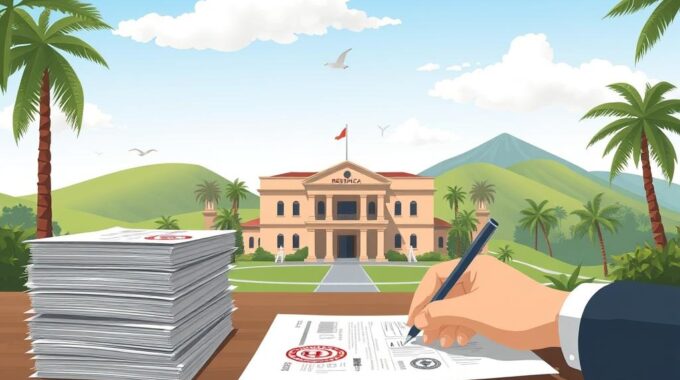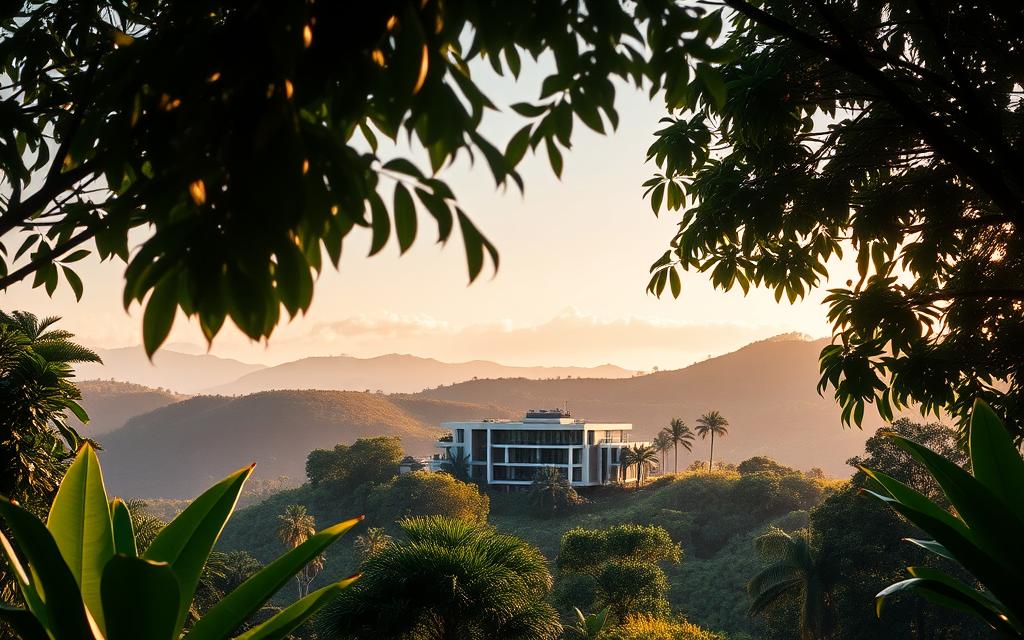GAP Investments is one of the trusted private lending companies Costa Rica, offering tailored financing solutions for private investors with competitive interest rates.

Costa Rica Residency Processing Time Explained
Costa Rica has become a popular destination for expatriates seeking a new home in a tropical paradise. Understanding the realistic timeline for obtaining residency is crucial for proper planning.
The residency process involves multiple stages, including document preparation and government processing. Official estimates may suggest shorter timeframes, but the actual time typically ranges from 6-14 months.
Costa Rica Immigration Experts (CRIE) has helped many clients achieve their dream of living in Costa Ricarica>. With over 20 years of experience, they are one of the most trusted immigration firms.
Approximately 80% of residency applications are rejected due to paperwork errors. Proper preparation and expert guidance can help streamline the application process.
Understanding the Costa Rica Residency Process
Costa Rica’s residency process is often misunderstood by applicants who underestimate its complexity. The journey to obtaining residency involves several stages, including document preparation, application submission, a waiting period, and final approval.
The Reality vs. Expectations
Many applicants begin the Costa Rica residency process with unrealistic expectations about the timeline and complexity. Official processing time estimates often don’t account for document preparation, authentication requirements, and potential bureaucratic delays, leading to a gap between expectations and reality. Typically, the process takes between 6 to 12 months from submission to approval.
Overview of the Application Journey
The complete residency application journey involves multiple phases: gathering and authenticating documents, submitting the application to Costa Rican immigration authorities, waiting during the government processing period, and finally receiving approval and the DIMEX card. Understanding that the residency process is a marathon rather than a sprint helps applicants prepare mentally and logistically for the journey ahead.
Costa Rica Residency Processing Time in Different Categories
Understanding the processing times for different Costa Rica residency categories is crucial for planning your relocation. The processing time varies significantly depending on the category of residency you’re applying for.
Pensionado and Rentista Processing Timeline
The Pensionado category, ideal for retirees, typically takes 8-12 months to process, while Rentista applicants usually wait 6-10 months. The Pensionado program requires a guaranteed lifetime pension of at least $1,000 per month, whereas Rentista applicants must prove a monthly income of $2,500 for two years or have a $60,000 bank deposit.
Inversionista Timeline
The Inversionista category, designed for investors, has a processing time of 4-8 months. This category requires a minimum investment of $150,000 in a local business, real estate, or government-approved projects, making it an attractive option for those looking to contribute to Costa Rica’s economy.
Digital Nomad Visa Processing
For those applying under the Digital Nomad visa, introduced in 2021 and refined in 2023, the processing time is approximately 2-3 months. This category is designed for remote workers, reflecting Costa Rica’s efforts to attract digital talent. For more information on the application process, visit Costa Rica Residency Application Process.
The Complete Residency Application Timeline
Costa Rica’s residency application process is multifaceted, with distinct phases that applicants must navigate. Understanding these phases is crucial for a smooth transition to residency.
Pre-Application Document Preparation
The pre-application preparation phase is the initial step towards obtaining Costa Rica residency, typically taking 1-3 months. This involves gathering required documents, including birth certificates and financial proof, which must be authenticated and translated.
- Gathering required documents from the home country
- Authentication and translation of documents
Application Submission and Initial Processing
Once documents are ready, applicants schedule an appointment at the immigration office (DGME), which can have backlogs of 3-4 weeks. After submission, applicants receive a file number and enter a waiting period that can last 4-10 months.
- Scheduling an appointment at DGME
- Receiving a file number and entering the waiting period
Approval and DIMEX Card Issuance
The final phase involves receiving provisional approval, enrolling in the Costa Rican healthcare system, and obtaining the DIMEX residency card, typically taking an additional 1-2 months.
- Receiving provisional approval
- Enrolling in the Costa Rican healthcare system (CAJA)
- Obtaining the DIMEX residency card
Factors That Influence Processing Times

Several key factors can influence the processing time for Costa Rica residency applications. Understanding these factors is crucial for managing expectations and ensuring a smooth application process.
Documentation Completeness and Accuracy
The completeness and accuracy of submitted documents play a crucial role in determining processing times. Approximately 80% of rejected applications contain preventable mistakes or omissions, such as expired criminal background checks or missing apostilles. Ensuring that all required documents are complete and accurate can significantly reduce processing times.
Government Processing Efficiency
Government processing efficiency also significantly impacts application processing times. Fluctuations in application volumes and staffing levels at the immigration department can lead to backlogs and delays. For instance, during major holiday periods like December-January and Easter week, government offices operate with reduced staff, causing slowdowns. To learn more about the challenges facing Costa Rica’s immigration process, visit CRIE.
Applicants should be aware that factors such as the complexity of their specific case and political influences can also affect processing times. By understanding these factors, applicants can better navigate the Costa Rica residency process.
Essential Documentation for Residency Applications
To successfully apply for residency in Costa Rica, it’s crucial to understand the required documentation. The process involves submitting various documents that vary depending on the type of residency category.
Core Legal Documents and Authentication
Core legal documents are mandatory for all residency applications. These include a valid passport, birth certificate, marriage or divorce certificates if applicable, and a criminal background check. Each document must be authenticated through apostille certification or consular authentication, followed by an official translation into Spanish. For more detailed information on the required paperwork, you can visit CRIE’s expertise on Costa Rica residency.
- A valid passport with at least six months of validity
- Birth certificate
- Marriage or divorce certificates if applicable
- Criminal background check from countries you’ve lived in during the past three years
Financial Documentation Requirements
Financial documentation requirements vary significantly by residency category. For instance, Pensionado applicants need to prove a lifetime pension income of at least $1,000 monthly, while Rentista applicants must show $2,500 monthly income for two years. Investor residency applicants need to document their investment in Costa Rican real estate, business, or government-approved projects.
Common Mistakes That Delay Residency Approval

Costa Rica residency applicants can improve their chances of a smooth application process by being aware of common mistakes. Understanding these pitfalls is crucial for a successful residency application.
Documentation Errors and Omissions
Approximately 80% of rejected residency applications contain preventable documentation errors. Common mistakes include submitting expired criminal background checks, failing to authenticate marriage certificates, and inconsistencies in document naming. Proper document authentication through apostille or consular certification is often overlooked.
Financial Verification Issues
Financial verification issues are particularly problematic for Pensionado and Rentista applicants, especially those with complex or multiple income sources. Insufficient proof of income stability and unclear sources of funds are common issues. For Investor residency applicants, incomplete investment documentation can cause significant delays.
Professional Immigration Services in Costa Rica

With extensive experience in handling residency applications, Costa Rica Immigration Experts (CRIE) offers expert guidance and support. Their team has helped numerous clients achieve their dream of living in Costa Rica.
Expert Document Preparation and Verification
CRIE’s expert document preparation service ensures that all paperwork is correctly completed, properly authenticated, and professionally translated before submission. This attention to detail significantly reduces the typical processing time for residency applications in Costa Rica.
- Professional verification of application materials before submission can identify potential issues that might cause delays or rejection.
- Immigration experts understand the nuances of different residency categories and can recommend the optimal pathway based on your specific financial situation and long-term goals in Costa Rica.
Application Monitoring and Follow-up
With CRIE, clients benefit from application monitoring and follow-up services, providing peace of mind during the waiting period. Their team maintains direct relationships with key immigration department personnel, allowing them to follow up on applications and address any questions promptly and efficiently.
- Professional immigration services offer valuable application monitoring and follow-up, maintaining direct relationships with key personnel in the immigration department.
- CRIE offers personalized consultations to answer questions and provide accurate pricing based on your specific situation.
Life After Residency Approval
Upon receiving residency approval in Costa Rica, individuals embark on a new journey filled with both privileges and responsibilities. As temporary residents, they gain significant rights, including legal long-term stay, access to the national healthcare system (CAJA), the ability to open bank accounts, sign contracts, and property ownership rights equal to those of citizens.
Managing Residency Obligations
Managing residency obligations is crucial and includes renewing the DIMEX card before expiration, remaining current with CAJA healthcare payments, and visiting Costa Rica at least once a year if traveling abroad. These obligations ensure that residents maintain their legal status in the country.
Path to Permanent Residency
After three years of maintaining temporary residency status, individuals become eligible to apply for permanent residency. This status removes many restrictions, including work limitations, and requires renewals only every five years. The permanent residency application process is simpler than the initial temporary residency application but still requires proving compliance with temporary residency requirements and demonstrating integration into Costa Rican society.
Conclusion
Understanding the Costa Rica residency process is crucial for a smooth transition to life in this beautiful country. The journey involves several steps, including pre-application preparation, application submission, and approval, which typically takes between 6 and 12 months. Professional guidance from experienced immigration experts like Costa Rica Immigration Experts (CRIE) can significantly enhance the speed and success rate of your application. For personalized assistance, contact CRIE via WhatsApp or visit their website.
By understanding the specific requirements for your chosen residency category and preparing complete documentation, you can navigate the process efficiently and begin enjoying all that Costa Rica has to offer.


